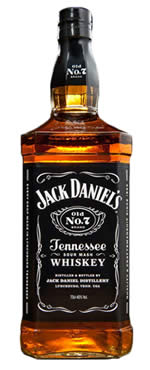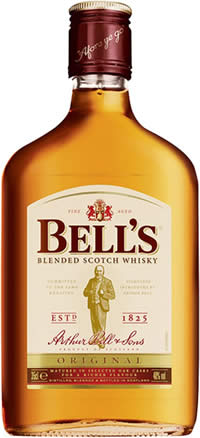Difference between Whiskey and Scotch
Key Difference: Whiskey or whisky is a type of distilled alcoholic beverage made from any form of fermented grain mash. Depending on the geographical region or type of whiskey that is being made, whiskey can be made from barley, malted barley, rye, malted rye, wheat, and corn. They are often aged in charred barrels. Scotch or scotch whiskey is actually a type of whiskey that is processed in Scotland. The term is legally reserved to whiskey that is produced in Scotland.
Whiskey and scotch are often heard and people with more knowledge about this topic often state how they are completely different from each other, confusing the regular folks who are not so vested in different types of alcohols. These knowledgeable people are also willing to shell out extra cash for purchasing scotch instead of whiskey. However, whiskey and scotch are more similar in nature than different. Both are whiskies, with scotch just being a whisky that was produced in Scotland. They may differ in taste, but that is only due to the different quality of grain that is used in local whiskey and scotch whiskey. Other than that, scotch is just another type of whiskey.
 Whiskey or whisky is a type of distilled alcoholic beverage made from any form of fermented grain mash. Depending on the geographical region or type of whiskey that is being made, whiskey can be made from barley, malted barley, rye, malted rye, wheat, and corn. They are often aged in charred barrels. According to Wikipedia, the word ‘whiskey’ is the anglicisation of the Gaelic word ‘uisce|uisge’ meaning “water”. Distilled water was known in Latin as aqua vitae meaning “water of life”. The process of distillation can be dated back to the Greeks in Alexandria around the 3rd century AD; however they did not distill alcohol only spirits for fragrance purposes. The distillation process was passed down through the ages to Italy in the 13th century AD where the first distillation process of alcohol took place and alcohol was distilled from wine. The alcohol was originally used for medicinal purposes before it become consumable as a beverage. Whiskey first become popular as a beverage in Scotland before it spread to other neighboring countries.
Whiskey or whisky is a type of distilled alcoholic beverage made from any form of fermented grain mash. Depending on the geographical region or type of whiskey that is being made, whiskey can be made from barley, malted barley, rye, malted rye, wheat, and corn. They are often aged in charred barrels. According to Wikipedia, the word ‘whiskey’ is the anglicisation of the Gaelic word ‘uisce|uisge’ meaning “water”. Distilled water was known in Latin as aqua vitae meaning “water of life”. The process of distillation can be dated back to the Greeks in Alexandria around the 3rd century AD; however they did not distill alcohol only spirits for fragrance purposes. The distillation process was passed down through the ages to Italy in the 13th century AD where the first distillation process of alcohol took place and alcohol was distilled from wine. The alcohol was originally used for medicinal purposes before it become consumable as a beverage. Whiskey first become popular as a beverage in Scotland before it spread to other neighboring countries.
There are various different types of whiskey and they differ in terms of base product, alcoholic content and quality. The main two types include malt whisky and grain whisky. Malt whisky is made primarily from malted barley, while grain whisky is made from any type of grain. Malting is when the grain is put under the process of germination. Germination requires the barley being placed in water for a certain amount of time and being constantly turned to ensure proper soaking. Whiskies can further be classified under:
- Single malt whisky: is whisky that is from a single distillery and is made from a mash that uses only one particular type of malted grain.
- Blended malt whisky: is a blend of different malt whiskies from different distilleries.
- Blended whiskies: is whiskey that is made from a mixture of malt and grain whiskies along with neutral spirits, caramel, and flavoring.
- Cask strength: These whiskies are bottled directly from the cask and are undiluted or only a little diluted. These are rare whiskies.
- Single cask: Each bottle of a single barrel whiskey is from an individual cask with the cask number labeled on the bottle.
Whiskies must be strengthened and aged in a barrel. They do not mature in the bottle, hence if a person keeps the whiskey bottle over a long time, it would not become any stronger in flavor or alcohol content. The alcohol content and mash content varies depending on the regulations of the geographic region. The whiskies require a charred oak barrel during the aging process, which provides them with the golden brown and amber coloring. Additional flavors and colors can be added to the alcohol depending on the regulations.

Scotch or scotch whiskey is actually a type of whiskey that is processed in Scotland. The term is legally reserved to whiskey that is produced in Scotland. It is originally made from malt barley, but during the 18th century distilleries started producing whiskies made from wheat and rye. In short, scotch is basically just a whiskey that was produced in Scotland, nothing more. According to the Scotch Whisky Regulations, scotch must be aged in oak barrels for at least three years. First written mention of Scotch whisky was in the Exchequer Rolls of Scotland, 1495 by a friar named John Cor, who was a distiller.
Scotch Whisky Association classifies scotch into five distinct categories.
- Single malt Scotch whisky: This whisky is produced from only water and malted barley at a single distillery by batch distillation in pot stills.
- Single grain Scotch whisky: This whisky is distilled at a single distillery, but it can also include whole grains of other malted or unmalted cereals, in addition to malted barley and water.
- Blended malt Scotch whisky: This whisky includes a mixture of two or more single malt Scotch whiskies from different distilleries
- Blended grain Scotch whisky: This whisky includes a mixture of two or more single grain Scotch whiskies from different distilleries.
- Blended Scotch whisky: This whisky includes a mix of one or more single malt Scotch whiskies with one or more single grain Scotch whiskies.
The Scotch Whisky Regulations 2009 set by the Scotch Whiskey Association defines ‘scotch’ as:
Produced at a distillery in Scotland from water and malted barley (to which only whole grains of other cereals may be added) all of which have been:
- Processed at that distillery into a mash
- Converted at that distillery to a fermentable substrate only by endogenous enzyme systems
- Fermented at that distillery only by adding yeast
- Distilled at an alcoholic strength by volume of less than 94.8% (190 US proof)
- Wholly matured in an excise warehouse in Scotland in oak casks of a capacity not exceeding 700 liters (185 US gal; 154 imp gal) for at least three years
- Retaining the color, aroma, and taste of the raw materials used in, and the method of, its production and maturation
- Containing no added substances, other than water and plain (E150A) caramel coloring
- Comprising a minimum alcoholic strength by volume of 40% (80 US proof)
Image Courtesy: ampmdirect.co.uk, mysupermarket.co.uk









Add new comment